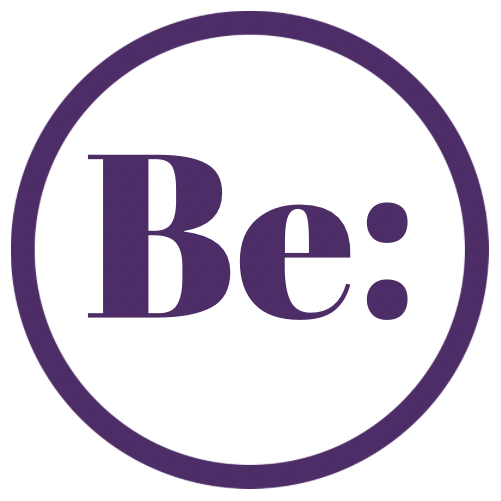Be: Principles
Community
noun - com·mu·ni·ty
a social, occupational, or other group sharing common characteristics or interests and perceived or perceiving itself as distinct in some respect from the larger society.
Ecosystem
noun - eco·sys·tem
a system, or a group of interconnected elements, formed by the interaction of a community of organisms with their environment.
any system or network of interconnecting and interacting parts.
Holistic
adjective - ho·lis·tic
PHILOSOPHY
characterized by the belief that the parts of something are intimately interconnected and explicable only by reference to the whole.
MEDICINE
characterized by the treatment of the whole person, taking into account mental and social factors, rather than just the symptoms of a disease.
Vis Medicatrix Naturae
latin phrase - vis me·di·ca·trix na·tu·rae
the healing power of nature.
Healing
noun - hee·ling·
the process of making or becoming sound or healthy again.
Naturopathy
noun - na·tu·rop·a·thy
a system or method of treating disease that employs no surgery or synthetic drugs but uses special diets, herbs, vitamins, massage, etc., to assist the natural healing processes.
Homeostasis
noun - ho·meo·sta·sis
PHYSIOLOGY
any self-regulating process by which biological systems tend to maintain stability while adjusting to conditions that are optimal for survival.
Empower
verb - em·pow·er
make a person stronger and more confident, especially in controlling their life and claiming their rights.
Intuition
noun - in·tu·i·tion
an ability to understand or know something immediately based on your feelings rather than facts.
Vibration
noun - vi·bra·tion
a characteristic emanation, aura, or spirit that infuses or vitalizes someone or something and that can be instinctively sensed or experienced —often used in plural
Energy
noun - en·er·gy
matter that cannot be created or destroyed, can be converted from one form to another.
“Whatever it is, the way you tell your story online can make all the difference.”
— Quote Source
Be: Principles
Holistic
adjective - ho·lis·tic
PHILOSOPHY
characterized by the belief that the parts of something are intimately interconnected and explicable only by reference to the whole.
MEDICINE
characterized by the treatment of the whole person, taking into account mental and social factors, rather than just the symptoms of a disease.
Disease
noun - dis·ease
a disordered or incorrectly functioning organ, part, structure, or system of the body resulting from the effect of genetic or developmental errors, infection, poisons, nutritional deficiency or imbalance, toxicity, or unfavorable environmental factors; illness; sickness; ailment.
Ecosystem
noun - eco·sys·tem
a system, or a group of interconnected elements, formed by the interaction of a community of organisms with their environment.
any system or network of interconnecting and interacting parts.
Trauma
noun - trau·ma
a deeply distressing or disturbing experience.
Insincere
adjective - in·sin·cere
not honest in the expression of actual feeling.
Organism
noun - or·gan·ism
a form of life composed of mutually interdependent parts that maintain various vital processes.
Genetic
adjective - ge·net·ic
relating to genes or hereditary.
Homeostasis
noun - ho·meo·sta·sis
PHYSIOLOGY
any self-regulating process by which biological systems tend to maintain stability while adjusting to conditions that are optimal for survival.
Ancestor
adjective - an·ces·tor
a person from whom one is descended.
Community
noun - com·mu·ni·ty
a social, occupational, or other group sharing common characteristics or interests and perceived or perceiving itself as distinct in some respect from the larger society.
Healing
noun - hee·ling·
the process of making or becoming sound or healthy again.
Naturopathy
noun - na·tu·rop·a·thy
a system or method of treating disease that employs no surgery or synthetic drugs but uses special diets, herbs, vitamins, massage, etc., to assist the natural healing processes.
Genetic
adjective - ge·net·ic
relating to genes or hereditary.
Homeostasis
noun - ho·meo·sta·sis
PHYSIOLOGY
any self-regulating process by which biological systems tend to maintain stability while adjusting to conditions that are optimal for survival.
Ancestor
adjective - an·ces·tor
a person from whom one is descended.
Community
noun - com·mu·ni·ty
a social, occupational, or other group sharing common characteristics or interests and perceived or perceiving itself as distinct in some respect from the larger society.
Healing
noun - hee·ling·
the process of making or becoming sound or healthy again.
Naturopathy
noun - na·tu·rop·a·thy
a system or method of treating disease that employs no surgery or synthetic drugs but uses special diets, herbs, vitamins, massage, etc., to assist the natural healing processes.
Intuition
noun - in·tu·i·tion
an ability to understand or know something immediately based on your feelings rather than facts.
Energy
noun - en·er·gy
matter that cannot be created or destroyed, can be converted from one form to another.
